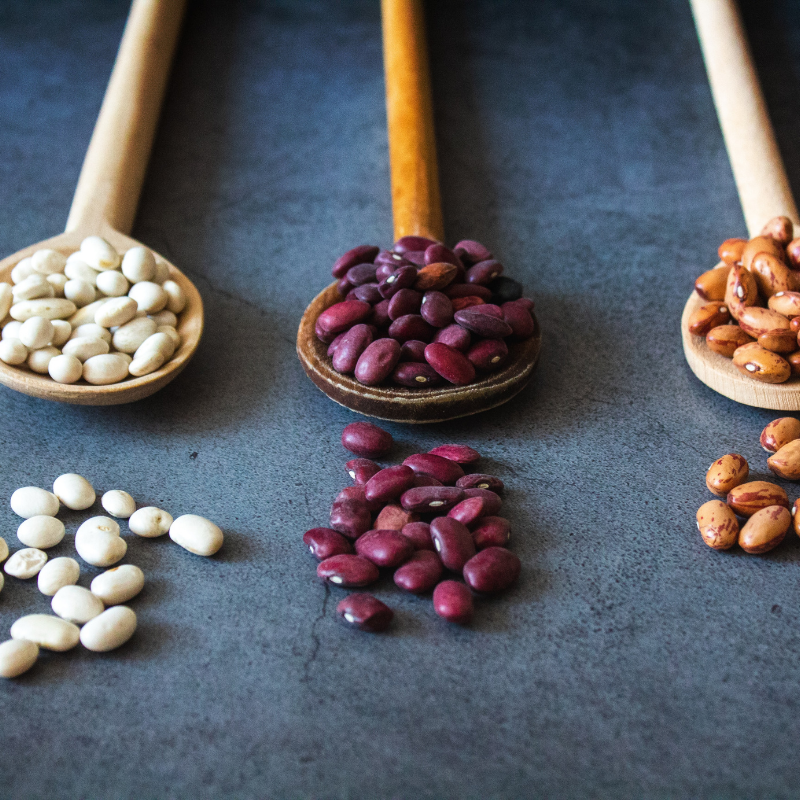 What you need to know about lectins
What you need to know about lectins
Lectins – a topic I get asked about all of the time! Lectins have gained a ton of popularity over the last few years and it can be a lot to digest and understand. Should we be avoiding lectins, or are they fine for our health? We’re breaking it all down!
What are lectins?
Lectins are a naturally occurring protein found in both plant and animal foods that bind to carbohydrates. It is thought that lectins are a part of plants’ defense mechanisms, acting as protection against insecticides. In the body, lectins are resistant to being broken down, sometimes making high amounts of them difficult to digest for certain people.
The impact of lectins on your health
Lectins have both pros and cons for your health.
Let’s start with the pros of consuming lectins. It is believed that lectins may help stabilize blood sugar levels by slowing down the digestion and absorption of carbohydrates, in turn suppressing a spike in your blood sugar levels. Additionally, high-lectin-containing foods include legumes, whole grains, nuts, and seeds. These foods have good nutrient profiles such as B-vitamins, minerals, fiber, protein, and healthy fats, associated with positive health outcomes such as weight loss, reduced risk of type II diabetes, and cardiovascular disease. Lastly, research suggests that lectins have antimicrobial properties helping your immune system again certain bacterial, viral, and yeast infections.
Health Benefits of Lectins:
- May help with blood-sugar control
- Found in foods rich in vitamins, minerals, protein, healthy fats, and fiber
- Founds in foods that are associated with positive health outcomes (weight loss, decreased risk of type II diabetes, and CVD)
- Believed to have antimicrobial properties
Cons of consuming lectins primarily concern digestion. Lectins are stable under high-acidity environments (found in the stomach) and are therefore very difficult for your body to digest. When lectins bind to carbohydrates, they can interfere and get in places within the body they shouldn’t, causing inflammation, digestive, and other health issues. This phenomenon is referred to as leaky gut, which essentially is when your gut’s lining slowly breaks down (think of cracks in a sidewalk or the texture of a sponge), resulting in increased gut permeability. This enables food particles to escape your GI tract and enter the bloodstream. Additionally, lectins are believed to disrupt food absorption due to impaired digestion, which increases the risk of nutritional deficiencies.
Health Drawbacks of Lectins:
- Inflammation
- Leaky Gut
- Nutritional Deficiencies
- Digestive Discomfort
- Joint Pain
- Fatigue
What foods are lectins found in?
Lectins are found in an abundance of foods, so eliminating them entirely is not realistic. However, the amount of lectins in each food varies significantly.
High Lectin Foods:
- Soybeans
- Lentils
- Red Kidney Beans
- Wheat Germ (think grain products like breads, cereals, corn, rice, barley, quinoa, etc.)
- Tomatoes
- Peas
- Eggplant
- Potatoes
- Peanuts
- Dairy Products
Are lectins right for you?
This is a loaded question! It really depends on how your body reacts to them and the current conditions you might be dealing with. Some people’s bodies do incredibly well with lectins, while others have a tough time tolerating them. If you notice that your diet consists of many high lectin foods and you’re having digestion or GI complications, then lowering the amount or removing it for a period of time can be helpful. If you find that you need to remove them for a period of time, remember that it doesn’t need to be permanent! The goal is to work on healing your gut in this time and then reintroduce them back into your diet when the time feels right. Lectins typically aren’t the first food group that I’ll have a client remove if they are experiencing GI issues, but it’s certainly not off the table!
In my practice, I often find that people who are consuming too many lectins complain of the following, especially after meals and lasting up to days later:
- Excess Gas and Bloating
- Diarrhea/Constipation
- Nausea
- Fatigue
- Headache
- Joint Pain
- Skin Changes
Other people with inflammatory conditions such as allergies, IBD, autoimmune, etc., should also consider going on a low-lectin diet, given that high lectin consumption may be a significant contributor to inflammation.
Personally, at my most inflamed, I found that going lectin-free was incredibly helpful. Even now, I find certain lectins to be troublesome – nightshades mostly.
Bottom line
Lectins are a protein found in plants that in high amounts may cause problems with digestion, energy, and your joints. High-lectin foods include nightshade vegetables, legumes, grains, and dairy products. Going on a low-lectin diet for a time period may be the right call for someone experiencing the health issues listed above or with an autoimmune/inflammatory profile.
Not sure where to start? Click here to work with me!







